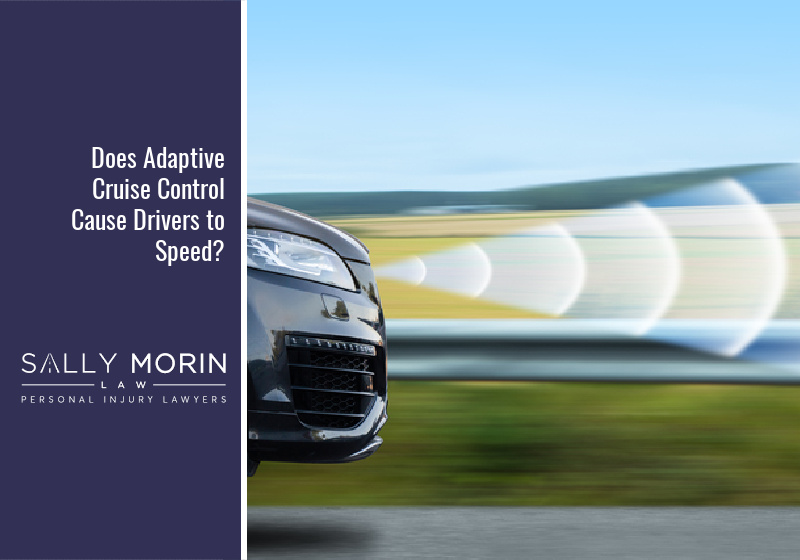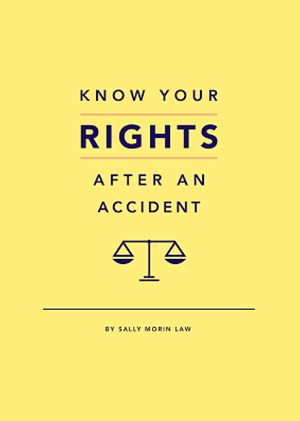Does Adaptive Cruise Control Cause Drivers to Speed?
Please be advised that the following topic is for informational purposes only and not a legal matter currently handled by our firm. If you need further assistance regarding this particular topic, you can contact your local Bar Association for a referral to an attorney who may be able to address your inquiry in more detail.
Cruise control has been around for decades, and now there’s an even newer and techier version: adaptive cruise control (ACC). It uses technology like lasers, radar, and built-in cameras to help drivers maintain the right speed.
As ACC has gained popularity, it’s become obvious that many drivers aren’t quite using it as the car manufacturers intended. Some drivers over-rely on the technology, assuming it will keep them from speeding. Others blatantly exceed the speed limit regardless of the ACC.
This leads to severe car accidents with catastrophic bodily injuries and property damage. The faster a car is speeding at the moment of impact, the more destruction it causes. Speeding is a factor in one-quarter of all road fatalities.
Why Does ACC Create a Safety Hazard?
ACC technology is supposed to make driving safer. It’s calibrated to carefully calculate travel and stopping distances while observing nearby vehicles, watching out for obstacles, and assisting the driver with proper vehicle control. Ideally, it helps a driver maintain safe driving and braking distances.
Out in the real world, ACC doesn’t always assist drivers as much as expected. People tend to ignore ACC warnings, use the ACC system to intentionally speed, and just override the built-in features that promote safe driving.
Plus, the technology itself isn’t flawless. ACC tech is always changing and comes with glitches and limitations within its sensors, thermal cameras, motion detectors, and automotive lasers. It’s simply not 100% reliable and people can still crash with ACC.
What Does the Research Say About Adaptive Cruise Control?
You might be surprised to learn that ACC not only allows people to speed but actually encourages them to exceed the speed limit while driving. Something about getting behind the wheel in an ACC-enabled car just turns people into speeders.
A study by the Insurance Institute for Highway Safety (IIHS) found that when people were using ACC, they traveled faster than the posted speed limit 95% of the time. Not only that, but these speeders tended to exceed the speed limit by many more miles per hour than drivers in cars without ACC technology.
Researchers have found that the issue of speeding while using adaptive cruise control arises from several main causes:
- Drivers aren’t paying close attention to their ACC systems.
- Drivers are too impatient to use ACC correctly.
- Roads with lower speed limits tempt people to override ACC for speeding.
- People don’t understand ACC technology and make assumptions about its operation.
The issue of misunderstanding the ACC technology is significant because it contributes to road accidents. A momentary mistake in interacting with the ACC can cause a crash.
For example, someone might hear a bell tone from the ACC and assume it means the ACC is automatically correcting a lane drifting problem. In actuality, the ACC could be telling them to correct the drift themselves. The misunderstanding could lead to a sideswipe accident.
Responsibility for Adaptive Cruise Control Crashes
It’s every driver’s responsibility to use ACC technology properly and drive safely at all times. In legal terminology, this means driving with “due care” for others on the road. Failing to exercise due care may put you at risk for legal liability in a crash.
In terms of speeding, a driver fails to exhibit due care when they travel faster than the posted speed limit or without considering the driving conditions. California law requires drivers to take extra caution and slow down when there is heavy traffic or bad weather, for example.
Anyone who’s driven in California knows our highways are famous for congestion and traffic jams. If you use your adaptive cruise control to blast your way into a line of stopped traffic and cause a chain-reaction crash, you could be liable for everyone’s damages.
The best way to avoid a nightmare scenario like this is to travel within the speed limit and avoid over-relying on your ACC. If another driver fails to use ACC correctly and hurts you, contact the team at Sally Morin Personal Injury Lawyers right away. We’re well-versed in ACC technology and its many risks to road safety.
We Handle Your Car Accident Claim So You Can Focus on Your Life

After your accident, contact the attorney team at Sally Morin Personal Injury Lawyers. We handle many areas of car accident law, including accidents involving adaptive cruise control. We believe you should be able to focus on recovering from your accident while we handle the legal details. Call 877-380-8852 today for a free case evaluation.











